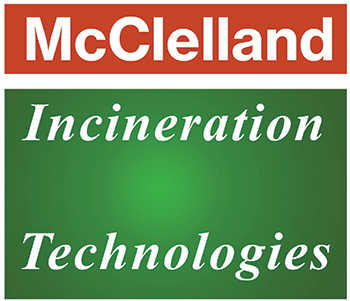 When considering the acquisition of an industrial incinerator, the initial purchase price is often just the tip of the iceberg. To truly understand the financial commitment and long-term viability of such a critical asset, businesses must delve into the Total Cost of Ownership (TCO). TCO encompasses all expenses associated with an incinerator throughout its entire lifecycle, from procurement to disposal. Overlooking these hidden costs can lead to significant financial surprises and impact overall operational profitability.
When considering the acquisition of an industrial incinerator, the initial purchase price is often just the tip of the iceberg. To truly understand the financial commitment and long-term viability of such a critical asset, businesses must delve into the Total Cost of Ownership (TCO). TCO encompasses all expenses associated with an incinerator throughout its entire lifecycle, from procurement to disposal. Overlooking these hidden costs can lead to significant financial surprises and impact overall operational profitability.
What is Total Cost of Ownership (TCO)?
TCO is a comprehensive financial assessment that helps businesses determine the true cost of an asset over its lifespan. For an industrial incinerator, this goes far beyond the upfront capital expenditure to include a wide array of ongoing operational, maintenance, and compliance-related expenses. A thorough TCO analysis enables informed decision-making, allowing companies to compare different incinerator solutions not just on their sticker price, but on their long-term economic impact.
Key Components of Incinerator TCO:
- Acquisition Costs:
- Purchase Price: The initial cost of the incinerator unit.
- Installation & Commissioning: Costs associated with site preparation, foundation work, utility connections, and bringing the system online.
- Permitting & Licensing: Fees and expenses related to obtaining necessary environmental permits and operating licenses.
- Operational Costs:
- Fuel Consumption: Incinerators require fuel (e.g., diesel, natural gas, propane) to maintain optimal combustion temperatures. Fuel costs can be substantial and vary based on waste type, incinerator design, and market prices.
- Energy Consumption: Electricity for fans, pumps, control systems, and air pollution control devices.
- Labor: Salaries and benefits for operators, supervisors, and waste handling personnel. The level of automation can significantly impact labor requirements.
- Consumables: Chemicals for air pollution control systems (e.g., lime, activated carbon), water for quenching and scrubbing, and other process materials.
- Maintenance Costs:
- Routine Maintenance: Scheduled inspections, cleaning, and minor repairs to ensure efficient operation and prevent breakdowns.
- Preventive & Predictive Maintenance: Costs associated with implementing technologies like vibration analysis, thermography, and oil analysis to identify potential issues before they become critical (as discussed in our previous post on Optimizing Incinerator Performance).
- Spare Parts: Replacement of wear-and-tear components like refractory lining, burners, fans, pumps, and instrumentation.
- Unplanned Repairs: Costs incurred due to unexpected breakdowns, which can be significantly higher than planned maintenance.
- Regulatory Compliance Costs:
- Emissions Monitoring: Continuous emissions monitoring systems (CEMS) and periodic stack testing to ensure compliance with air quality regulations.
- Reporting & Record-Keeping: Costs associated with generating and submitting compliance reports to regulatory bodies.
- Permit Renewals: Ongoing fees and processes for renewing operating permits.
- Potential Fines & Penalties: Costs incurred due to non-compliance with environmental regulations.
- Waste Disposal Costs (By-products):
- Ash Disposal: Incineration produces ash (bottom ash and fly ash) that requires proper disposal, often in specialized landfills. Disposal costs can vary based on the hazardous nature of the ash and local regulations.
- Wastewater Treatment: If the incinerator’s air pollution control system generates wastewater, there will be costs associated with its treatment and disposal.
- Decommissioning & Disposal Costs (End-of-Life):
- At the end of its operational life, the incinerator will need to be safely decommissioned and disposed of, which can involve significant costs for dismantling, waste removal, and site remediation.
The Mc Clelland Engineers Advantage: Designed for Lower TCO
At Mc Clelland Engineers Pvt. Ltd., we understand that the true value of an industrial incinerator lies in its long-term performance and cost-effectiveness. As a leading incinerator manufacturer since 1985, we design and engineer our advanced incineration and thermal desorption systems with a strong focus on minimizing TCO.
Our incinerators are built with:
- Energy Efficiency: Optimized combustion processes and heat recovery systems to reduce fuel and energy consumption.
- Durable Construction: High-quality materials and robust engineering to minimize wear and tear, extending the lifespan of components and reducing maintenance frequency.
- Advanced Control Systems: Automation features that optimize operation, reduce labor requirements, and ensure consistent performance.
- Effective Air Pollution Control: Integrated, efficient air pollution control devices that help ensure regulatory compliance and minimize the risk of costly penalties.
We believe in providing solutions that offer not just superior performance, but also a predictable and manageable total cost of ownership. Our expertise extends to helping clients understand and plan for all aspects of incinerator ownership, ensuring a sound investment. Learn more about our commitment to quality and long-term value by visiting our official website, https://mcclellandindia.com/.
Making an Informed Investment
Choosing an industrial incinerator is a significant decision. By looking “beyond the purchase price” and conducting a thorough TCO analysis, businesses can make a truly informed investment. Partnering with a manufacturer like Mc Clelland Engineers, who prioritizes efficiency, durability, and comprehensive support, is crucial for ensuring that your incinerator delivers optimal performance and cost savings throughout its entire operational life.
Ready to explore incinerator solutions with a favorable Total Cost of Ownership? Contact Mc Clelland Engineers Pvt. Ltd. today to discuss your specific waste management needs and discover how our systems can provide long-term value.

